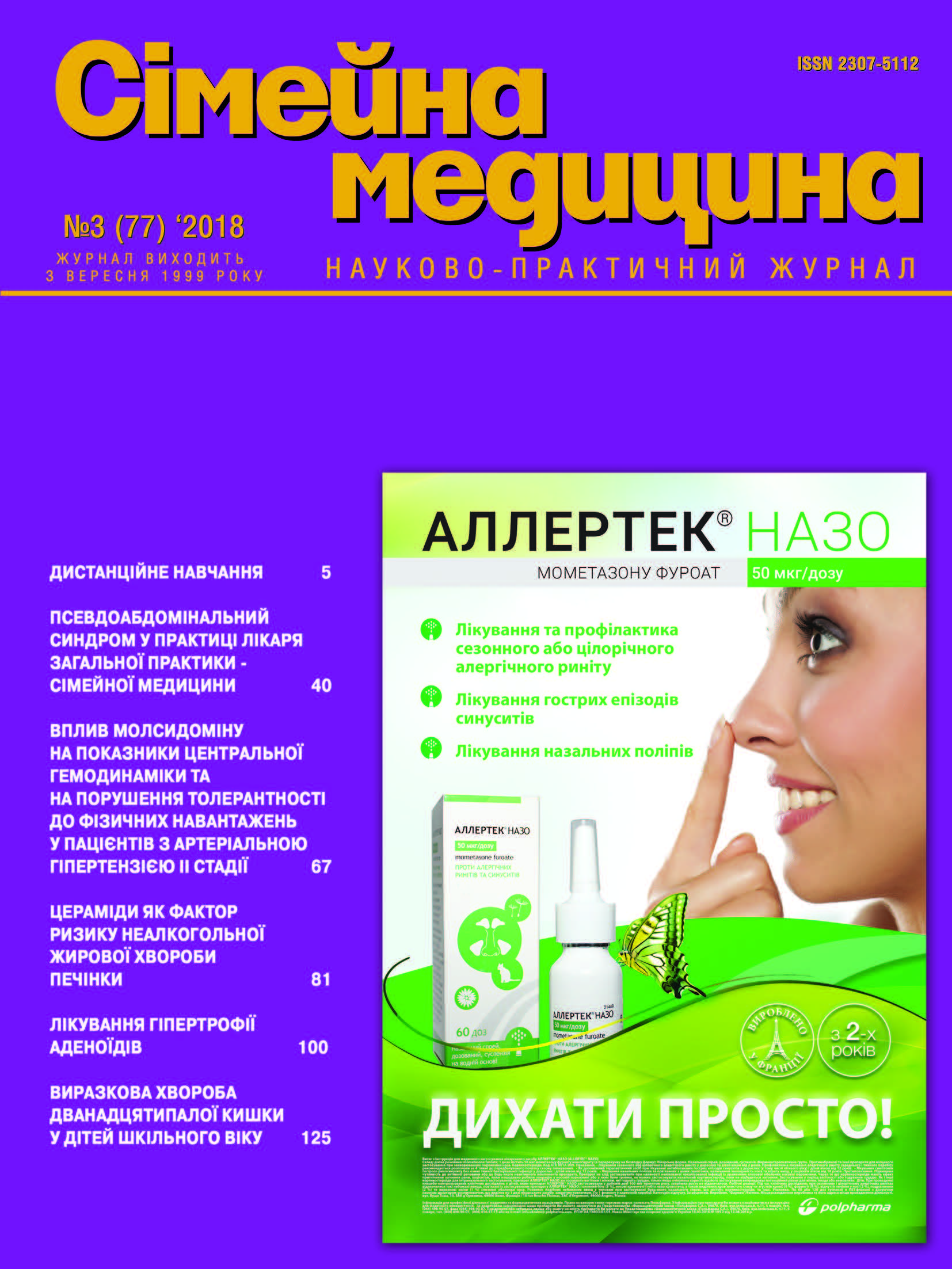Standards and risk factors for reducing the amount of lactobacillus and bifidobacterium in bronchoalveolar lavage in young patients with recurrent bronchitis
##plugins.themes.bootstrap3.article.main##
Abstract
The role of normal microflora of the respiratory tract in maintaining the homeostasis of an organism is extremely important. The upper respiratory tract have a high microbial burden, since their mucus membrane is the first to resist the actions of various environmental factors.
The objective: to study parameters of lactobacillus and bifidobacterium in bronchoalveolar lavage, in young people without respiratory diseases, and to identify the risk factors for decreasing the normal flora in patients with recurrent bronchitis.
Materials and methods. For the period from November, 2015 to May 2017, a survey of 108 patients aged 18 to 35 years old was conducted. Of these, men – 61% (56,5±4,8), women – 47% (43,5±4,8) with recurrent bronchitis (ICD-10 J40). In addition, 20 patients in the control group with a diagnosis were examined «Third-party respiratory tract» were examined, among which 35,0% (7/20) were males and 65,0% (13/20) women.
Results. The norm for lactobacillus and bifidobacterium in bronchoalveolar lavage in individuals from 18 to 35 years old was first established. The positive result of this study allows us to recommend this rate norm for use in the practice of family physician and pulmonologist. The revealed risk factors for reducing the number of lactobacillus and bifidobacterium in recurrent bronchitis in young patients.
Conclusions. The presence of lactobacillus and bifidobacterium in degree 105 and above can be considered as a variant of the norm among the population aged 18 to 35 years, without diseases of the lower respiratory tract. Overweight is a risk factor for reducing lactobacillus and bifidobacterium by 1.3 times. The fact of smoking, like the fact of antibiotic therapy, increases the risk of lactobacillus reduction in patients with recurrent bronchitis by 1,5 times.##plugins.themes.bootstrap3.article.details##

This work is licensed under a Creative Commons Attribution 4.0 International License.
Authors retain the copyright and grant the journal the first publication of original scientific articles under the Creative Commons Attribution 4.0 International License, which allows others to distribute work with acknowledgment of authorship and first publication in this journal.
References
A catalog of reference genomes from the human microbiome // Science. – 2010; 328(5981):994–9. https://doi.org/10.1126/science.1183605
Intestinal microbiota in pathophysiology and management of irritable bowel syndrome // Lee K.N., Lee O.Y./ World J Gastroenterol. 2014 20(27):8886–97. https://doi.org/10.3748/wjg.v20.i27.8886
Фещенко Ю.І. Особливості мікробіоценозу верхніх дихальних шляхів у хворих на бронхіальну астму у фазі загострення / Ю.І. Фещенко, І.П. Турчина, Л.М.Курик // Український пульмонологічний журнал, – 2014. – № 2. – С. 40–44. PDF
Звягинцева Т.Д. Дисбиоз тонкого и толстого кишечника: возможности патогенетической коррекции / Т.Д. Звягинцева, А.И. Чернобай // Укр. мед. вісн. – 2013 – № 5 (80). – С. 60–64.
Woodhead M. Guidelines for the managent of adult lower respiratory tract infections [Text] / M. Woodhead [et al.] // Clinical microbiology and infection. – 2011. – Vol. 17, Suppl.6 – P.E1–E59. https://doi.org/10.1111/j.1469-0691.2011.03672.x
Харченко Н.В Роль порушень кишкового мікробіоценозу в розвитку гіперхолестеринемії // Сучасна гастроентерологія. – 2015. – № 5 (85). – С. 76–82.
Турчина І.П. Особливості клінічного перебігу бронхіальної астми у хворих з колонізацією верхніх дихальних шляхів умовно-патогенною мікрофлорою // Науково-практичний журнал «Астма і Алергія», 2014. – № 3. – С. 30–21. PDF
Development of intestinal microbiota in infants and its impact on health // Matamoros S., Gras-Leguen C., Le Vacon F./ Trends Microbiol. 2013 Apr 21(4):167–73. https://doi.org/10.1016/j.tim.2012.12.001





